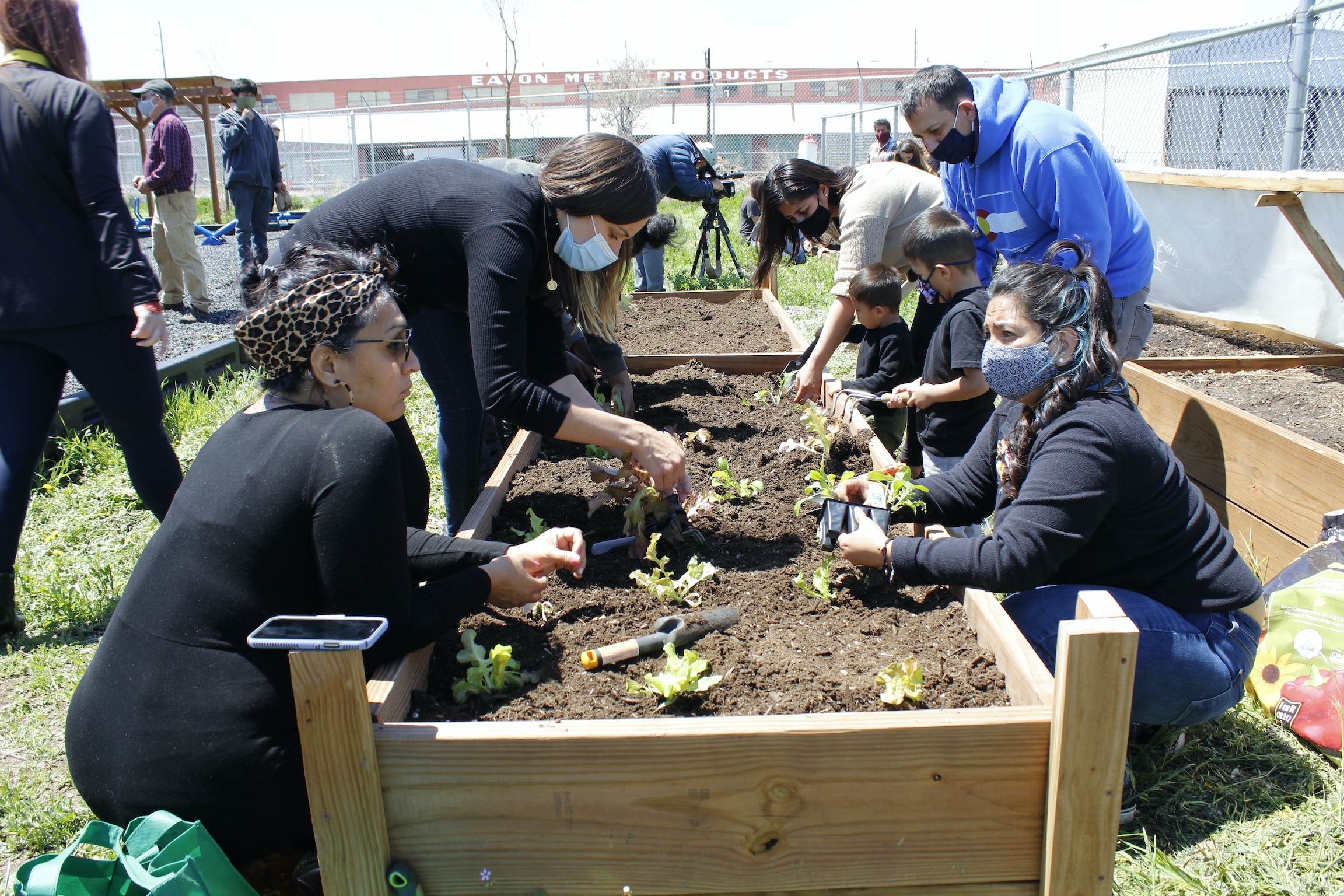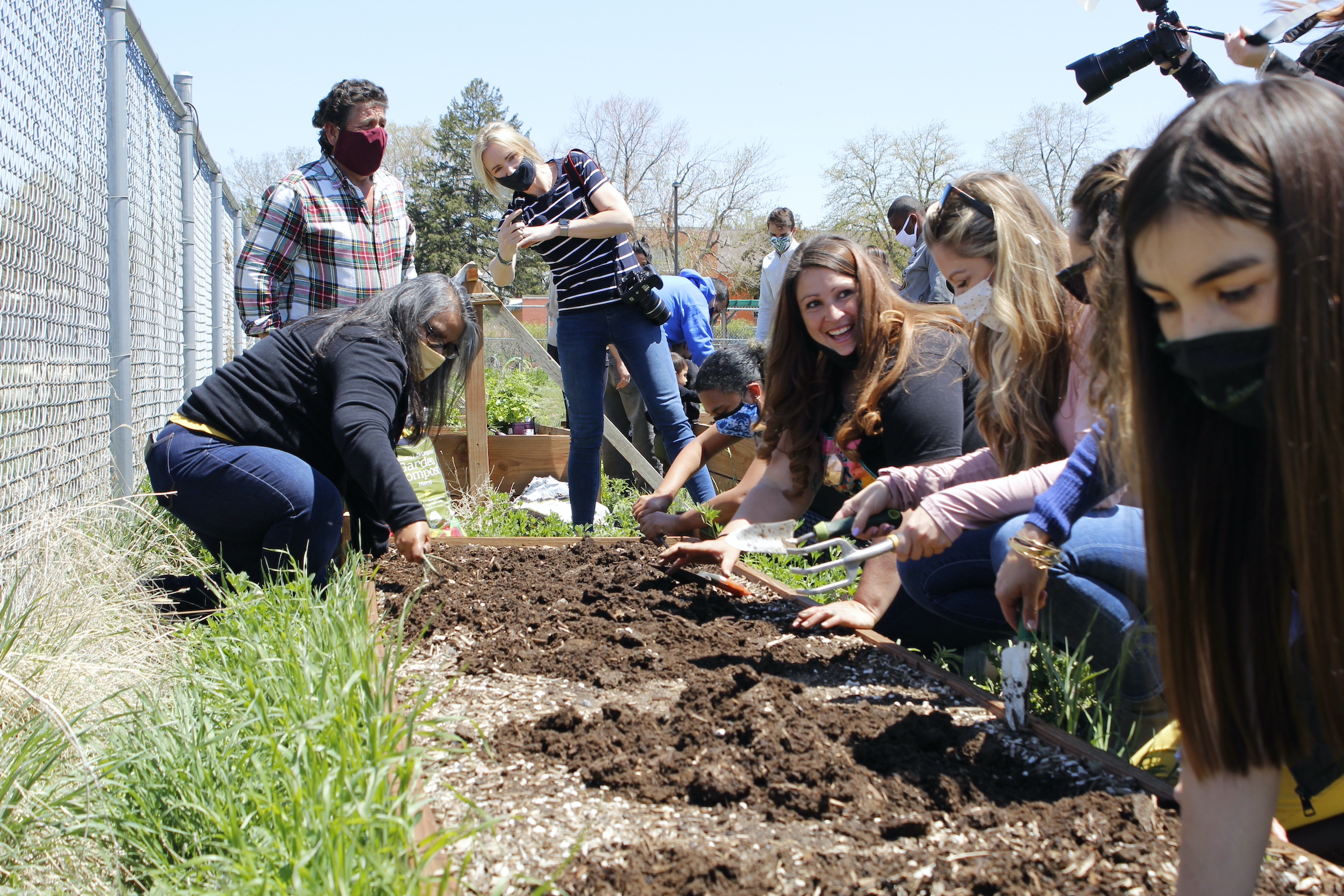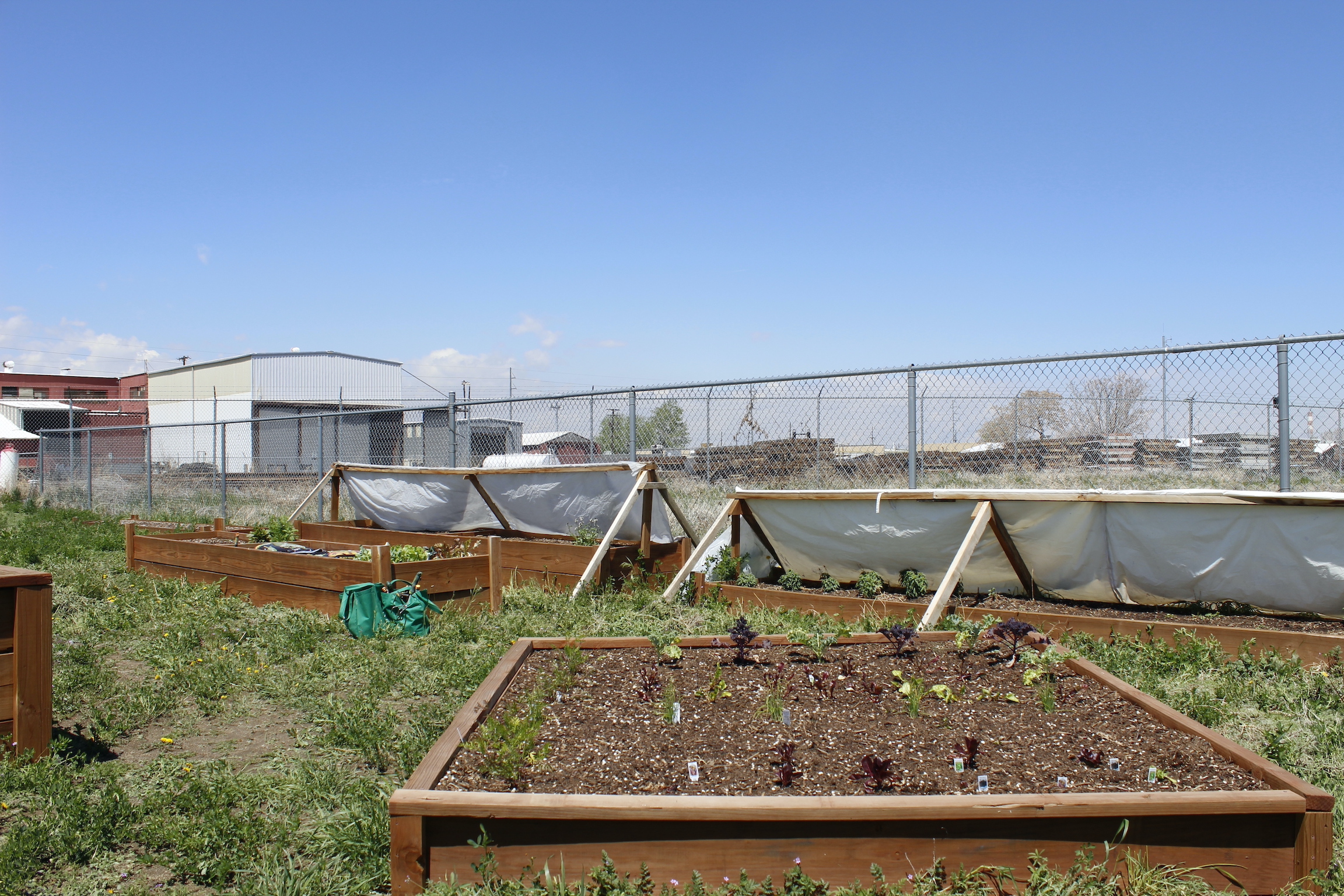Urban farming is sort of having a moment. As food insecurity increases and is exacerbated by the pandemic, local nonprofits and concerned community members are combating food inaccessibility from the ground up.
“The dirt is really important here,” joked Matt Vernon to event attendees during the launch of Huerta Urbana, Focus Points Family Resource Center’s new urban farming social enterprise program.

Vernon, the director of social enterprise at Focus Points, was nodding to the scattered garden beds and piles of soil that have taken over a large portion of the nonprofit’s backyard space, next to a playground.
The program will mentor eight local participants from the Globeville and Elyria-Swansea (GES) neighborhoods that have gone through Colorado State University and GoFarm’s Beginner Market Farmer Training Certificate program with the proper skills and training to build a successful agriculture and community enterprise while also addressing local food insecurity.
Focus Point’s culinary program Comal Heritage Food Incubator, served potato and chicken flautas, while to-go bags of soil with yellow crookneck squash seeds were prepared and handed out during the launch on May 12. Following a brief speech by Vernon and program participants – with a Spanish translator – community members headed to the garden beds and broke ground.
“This area is definitely food-deprived, I would say,” said Elizabeth Dikeman, a participant of the program. “You can walk down to 7 Eleven, but what’s there? It’s all just junk food and stuff that’s made in a microwave.” Dikeman hopes to start her own farm after she completes her training with Huerta Urbana. “I want to start growing food for my neighbors and people who are in need.”
Program participants, like Dikeman, are trained to cultivate urban farms and distribute produce to the community through an earn-while-you-learn program. Rachel Feinberg, communication specialist, says this helps bridge the barrier that many people face when having to choose between employment or education.
Dikeman says urban farming provides healthier, local produce while educating younger generations about where food is sourced, how it’s made and to build a more sustainable, health-conscious community.
Before Focus Points launched Huerta Urbana, they grew local produce ranging from potatoes, lettuce, muskmelon and more in garden bed plots at the nearby Swansea Elementary School. That produce was then distributed at the Lost City Market through a pay-as-you-can system and Huerta Urbana will carry those efforts forward.

“This land has been a part of community benefit for years,” explained Vernon. “To continue that, we’re going to redevelop this into an urban farm to support participants to not only learn how to make their own [farms] but also to support their work-readiness in urban agriculture.”
The program was designed by the community itself said Vernon, and added that Focus Points aims to allocate more resources into where it’s needed and requested.
Huerta Urbana’s ultimate goal is to help participants from the community access job training in urban agriculture, entrepreneurship and co-op formation to make a positive impact on their local communities.

“COVID really shone a light on the inequity of food access in this neighborhood that’s been a challenge for decades. And I think we have a unique opportunity and participants are taking that opportunity to literally start growing their own fresh food right here in the neighborhood,” he said.
Growing a variety of produce to encourage and preserve cultural ties in the community is also important for the program, added Vernon.
“I really think now, especially more than ever, being able to produce food locally that’s culturally responsive is just another way to not only reduce food miles and food pollution but also show that food is just what connects us all at the end of the day,” he said.
Huerta Urbana will use four greenhouses and 10 raised garden beds for the 2021 growing season.
To learn more about the program, visit here.
All photography by Hilal Bahcetepe.






